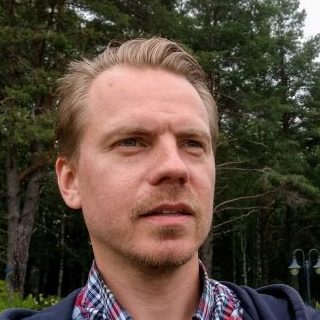Solving the reproducibility crisis in the digital era
We are happy to present Johan Jansson, Associate Professor at Numerical Methods/Computational Science and Technology Numerical Methods/Computational Science and Technology at KTH, and leading the CFD Computational Technology research line at the Basque Center for Applied Mathematics (BCAM).
Date and time: 9 February 2021, 3 pm – 4 pm
Speaker: Johan Jansson
Title: Solving the reproducibility crisis in the digital era
Zoom: https://kth-se.zoom.us/j/67432682790?pwd=dVgzbjRSbUVFT2FOYTByYlZrTU9BUT09
Meeting ID: 674 3268 2790
Password: DF2020
Watch the recorded presentation:
 Abstract: Jansson presents the Digital Math framework as the foundation for modern science-based on constructive digital mathematical computation. The computed result (coefficient vector, FEM function, plot, etc.) is a mathematical theorem, and the mathematical Open Source code, here in the FEniCS framework, and computation is the mathematical proof. Based on the Digital Math framework and the FEniCS realization, we present solutions to some of the grand challenges in science, education and industry.
Abstract: Jansson presents the Digital Math framework as the foundation for modern science-based on constructive digital mathematical computation. The computed result (coefficient vector, FEM function, plot, etc.) is a mathematical theorem, and the mathematical Open Source code, here in the FEniCS framework, and computation is the mathematical proof. Based on the Digital Math framework and the FEniCS realization, we present solutions to some of the grand challenges in science, education and industry.
In this seminar, Johan Jansson specifically focus on solving the reproducibility crisis in research, recently highlighted in our panel debate with Swedish Parliament and top Swedish journalist: http://digimat.tech/paneldebate-kth/
Problem: The Karolinska Institutet President Ottersen describes the problem concisely; “We are in the midst of what some have called a research reproducibility crisis. While scientific discovery and complexity are developing at an unprecedented speed, less than 50% of scientific research studies can be reliably replicated. Left unchecked, this troubling fact may threaten our ability to generate sound, evidence-based knowledge that meets society’s needs. It is time to look beyond the traditional measures of quality and re-examine the very concept of quality itself.”
In school, one may not only give the answer to a problem – “show your work!”. In research it is often not possible to see or reproduce how the answer was derived or constructed, why is it so? Johan Jansson has driven the development of digitalization in the form of Open Source (“Digital Math”) as a solution to the reproducibility crisis since 2003, the framework has become a de-facto world standard for advanced mathematical modelling. He also leads the largest online course DigiMat Pro at KTH based on this with 30000+ participants.
As part of the seminar, you are invited to participate in the online course on reproducible research, where you in an accessible way can create your own reproducible “Digital Math” publication: http://digimat.tech/digimat/#repro
Bio: Johan Jansson, is an Associate Professor at Numerical Methods/Computational Science and Technology Numerical Methods/Computational Science and Technology at KTH, and leading the CFD Computational Technology research line at the Basque Center for Applied Mathematics (BCAM).
Jansson is aiming at developing automated and adaptive finite element methods and the open-source FEniCS and FEniCS-HPC software framework for solving partial differential equations based on FEM with good scaling on massively parallel computers. A particular focus in the Unicorn component of FEniCS is on turbulent flow and fluid-structure interaction, and he also develops applications in aerodynamics and biomechanics.


